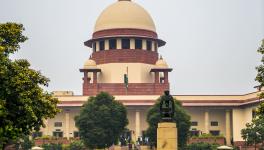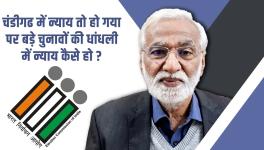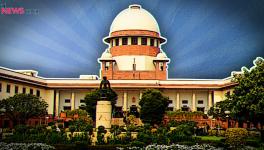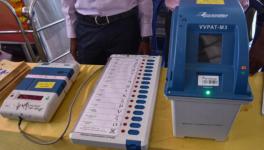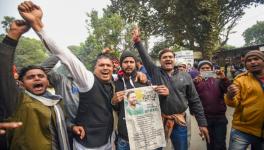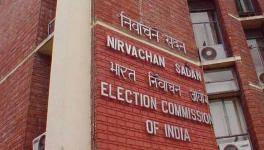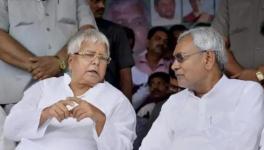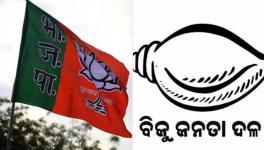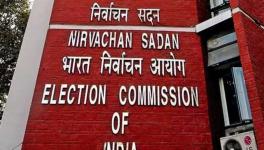When Governance Becomes a Soap Opera
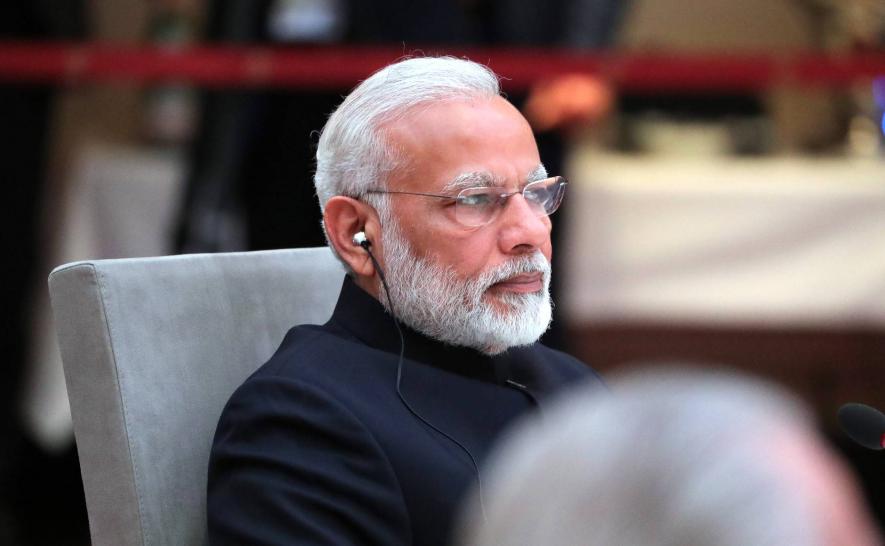
Image Courtesy: Wikimedia Commons
We can sum up the governance under Prime Minister Narendra Modi as the longest-running soap opera in recent times—seven years and still going strong. Perhaps this model of governance started when news channels turned 24/7.
The impact of news channels on politics was felt for the first time during the Anna Hazare-led protest in the Capital, which kept them engaged although they incurred very few costs in the coverage. That protest had a huge impact on the political mood, and the Congress party paid for this change, although nothing else came out of it.
The realisation dawned at the time that a momentary but high-impact spectacle can be rewarding, especially when it comes to changing the course of elections. Only, the script has to be well-drafted and executed. The same assumptions underpinned Jean Baudrillard’s statement—“Never again will the real have the chance to produce itself”. He meant that no reality is being represented as such, only symbolism and significations are being projected, and these are the “new real” that now produce social reality.
The new model of governance as soap opera is based on a rudimentary understanding of a vulnerability that afflicts human psychology. One can gain access to this weakness by understanding psychic processes and how people instinctively respond to situations. This knowledge grants access to a social and cultural “average”, to which the majority of society can be said to correspond.
The one who arms himself with this understanding can assume that most people, given how they relate to social reality, can be kept absorbed and engaged by events that are specifically produced to relate to them. Such events can keep people in a state of excitement, if not hysteria, all the time.
It is access to this understanding that gives the present regime enough confidence to negotiate with adversities, be it a shrinking economy or rising inflation, and gives it the will to keep taking on electoral battles.
Some of these lessons are entrenched in the writings of Chanakya in the East and Machiavelli in the West, who suggested disengaging morality from governance; effectively reducing governance to pure instrumental reasoning. “Do what pays” is the guiding force of this model of governance: do things based on what you wish to entrench in the popular consciousness. In the end, such governance boils down to “predatory pragmatism”.
The entire period under Prime Minister Modi can be seen as a soap opera where characters change, situations change, but there is always one central character. So, demonetisation was announced at the “stroke of the midnight hour” to awaken us from the implied moral decadency that society was slipping into. And this event kept us busy for months, discussing its pros and cons. It empowered the “common man” to judge technical economic issues, and called for his or her active participation in the “service of the nation”.
When election time comes, the soap opera of governance promises to produce even more twists and turns, just like a TV soap keeps the suspense for the end of each episode, making us feel compelled to keep watching. During the general election in 2019, it was the strikes in Balakot that distracted us. During the Assembly election in Delhi, it was the “goli maaro…” slogan directed against the minority Muslims.
When it was time for the election in Bihar, the Sushant Singh Rajput episode ran without a break for three months. The SSR episode was a peculiar kind of extravaganza, containing all the familiar elements of betrayal, suspense, crime, and a latent link with the Bihar polls. It also disappeared the moment that election was over.
Now, it is the turn of the bomb scare near top industrialist Mukesh Ambani’s residence in Mumbai. The plot is thickening and a triangular contest is being enacted between the Maharashtra government, the National Investigation Agency, and the industrialist himself, though he is rather haplessly missing in action. The bomb-scare theme is just picking up steam. It needs to be watched for how much response it gets from people.
It does not even matter if people think the bomb scare is an “event” that has been manufactured to divert their attention. The real challenge is to eventually absorb and tempt people into its narratives, even if they know they are being lured. It is something akin to addiction. The entire episode is scripted yet spontaneous, emotional yet calculated. It smudges the lines that distinguished old binaries.
Governance as soap opera may have gained momentum beyond the ruling dispensation—but has it emerged as a generic model of politics? The emergence of Prashant Kishor as an important player on the political horizon tells us something very important: that narratives can be, rather need to be, generated.
These narratives are based on how a party or leader can connect to public emotions. Emotions here do not necessarily have to be understood as organic or spontaneous. They include emotions that have been manufactured, or guided.
Based on a collection of large quantities of constituency-wise data, it can be understood what the “mood” is. Thereby, politics can discern what needs to be fed to people (who are in a certain mood) to elicit a response from them. Both the leader and the people know there is an element of performance involved in their dynamic, but it is still understood to be an authentic process. Everybody gets to inhabit an in-between zone: between the real and the unreal.
These in-between spaces are being normalised in Indian politics and governance. Our state is just the way we respond to emotions displayed by characters in a soap opera—we know these are actors performing, and not real, yet we emotionally relate to their characters and what they emote. For instance, we do not know if West Bengal Chief Minister Mamta Banerjee’s injury is a planned attack, a drama, or an accident. Yet, over time, we have become less interested in the veracity of the incident and more in how it “feels” to see an injured leader campaign for an election.
This is perhaps a fresh situation—we do not remember any such imageries from our recent past. How this will pan out depends on whether people sympathise with or develop contempt for Banerjee’s weakness and vulnerability. Could they be reminded of their vulnerability when they see her weak? This is why both performance and the narrative built around it are crucial.
The popularity of a soap opera fades over time. One day, it no longer remains fresh, becomes predictable. It is to avoid this that the Prime Minister has been changing his persona as frequently as possible. He sees himself as a persona, not a corporeal entity. But the challenge for scriptwriters everywhere is how to give a twist in the plot of a soap opera to make the routine appear new, to keep audience interest alive. We will have to wait and see how many episodes it lasts and if governance as a soap opera is here to stay for good.
The author is an associate professor at the Centre for Political Studies, Jawaharlal Nehru University, Delhi. The views are personal.
Get the latest reports & analysis with people's perspective on Protests, movements & deep analytical videos, discussions of the current affairs in your Telegram app. Subscribe to NewsClick's Telegram channel & get Real-Time updates on stories, as they get published on our website.










